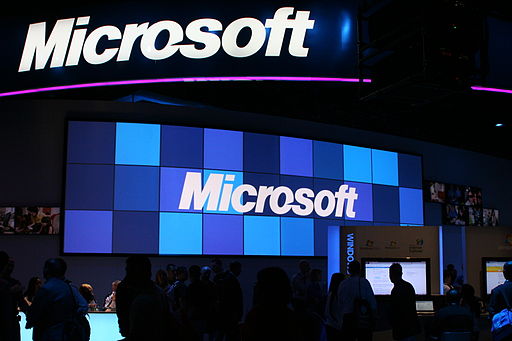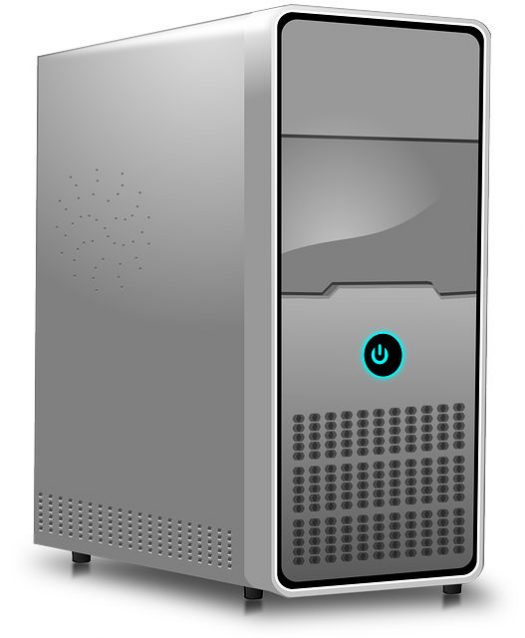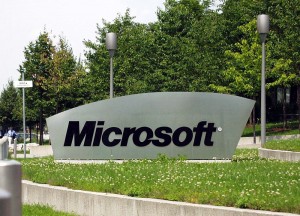When Steve Ballmer left Microsoft, the company seemed to be losing its grip and many predicted the company would slowly slide into oblivion. The company’s latest financials show the company to be healthy, and not likely to quit being a thorn in FOSS’s side for the foreseeable future.
Common knowledge is a funny thing. It’s often wrong and based on wishes instead of reality. Take the supposition that shows up in the comments on FOSS Force whenever Microsoft pops up in the news. Among many GNU/Linux desktop users, Windows is now irrelevant and Microsoft is a dying company that’s all but on life support. This is pure wishful thinking based on a passionate dislike of all things Microsoft by many Linux users.
Christine Hall has been a journalist since 1971. In 2001, she began writing a weekly consumer computer column and started covering Linux and FOSS in 2002 after making the switch to GNU/Linux. Follow her on Twitter: @BrideOfLinux




 The announcement came about an hour ago via a
The announcement came about an hour ago via a 

 The review on Distrowatch was part of a one time trade that had Distrowatch’s Jesse Smith writing a
The review on Distrowatch was part of a one time trade that had Distrowatch’s Jesse Smith writing a 
 OpenOffice, if you’ll remember, was forked by a group of developers who had been frustrated for years by roadblocks to what they saw as necessary development by Sun Microsystems, which had created the open source project out of Star Office, a proprietary suite it purchased in the late 1990s. When the situation worsened after Oracle took ownership, the developers created The Document Foundation, forked OpenOffice and released it as LibreOffice under the GPL. Improvements became evident right away, with much of the early work centering on cleaning up the bloated code base.
OpenOffice, if you’ll remember, was forked by a group of developers who had been frustrated for years by roadblocks to what they saw as necessary development by Sun Microsystems, which had created the open source project out of Star Office, a proprietary suite it purchased in the late 1990s. When the situation worsened after Oracle took ownership, the developers created The Document Foundation, forked OpenOffice and released it as LibreOffice under the GPL. Improvements became evident right away, with much of the early work centering on cleaning up the bloated code base.
 As development continued, refinements were naturally added that didn’t exist in other operating systems, many of which eventually ended up in other *nixes and even Windows, just as many new additions to Unix also ended up in the Linux kernel. But the original purpose was simply to build on what had gone before, not to create something radically different.
As development continued, refinements were naturally added that didn’t exist in other operating systems, many of which eventually ended up in other *nixes and even Windows, just as many new additions to Unix also ended up in the Linux kernel. But the original purpose was simply to build on what had gone before, not to create something radically different.
 Let’s forget for a minute that I have plenty of reasons for seeing Redmond as a continuing threat to free tech. Let’s forget the patent issues the company still uses as a threat, as well as the fact that all of its contributions to open source are to support Azure and Windows, the latter of which remains proprietary and definitely not free software. Let’s also forget that this love of Linux was announced when Microsoft began betting on the cloud, where embracing Linux became necessary for survival. Can you imagine a Windows only cloud service? Neither can I.
Let’s forget for a minute that I have plenty of reasons for seeing Redmond as a continuing threat to free tech. Let’s forget the patent issues the company still uses as a threat, as well as the fact that all of its contributions to open source are to support Azure and Windows, the latter of which remains proprietary and definitely not free software. Let’s also forget that this love of Linux was announced when Microsoft began betting on the cloud, where embracing Linux became necessary for survival. Can you imagine a Windows only cloud service? Neither can I.
 When the brouhaha exploded after the release of GNOME 3, I wasn’t much interested in having a look for myself. However, a few weeks back I finally got some hands-on experience when I wrote a review of Antergos, which I installed with GNOME, not so much because I wanted to give the DE a look but because it’s the distro’s default.
When the brouhaha exploded after the release of GNOME 3, I wasn’t much interested in having a look for myself. However, a few weeks back I finally got some hands-on experience when I wrote a review of Antergos, which I installed with GNOME, not so much because I wanted to give the DE a look but because it’s the distro’s default.